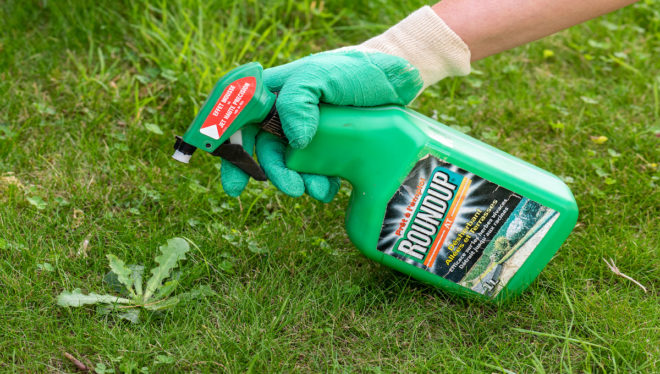3 years ago

On Monday the U.S. Court of Appeals for the Ninth Circuit heard arguments in the challenge to the Environmental Protection Agency (EPA) approval of Glyphosate, the active ingredient in Monsanto-Bayer’s flagship Roundup weedkiller.
Glyphosate is down but not out after last year when California’s highest Court upheld an $86.2 million award to a couple who developed cancer after using Roundup for 30 years. After that loss, Bayer agreed to fund a $30 billion settlement with thousands of other lawsuits filed in state and local courts. Up to another $2 billion went to future litigation.
The Center for Food Safety leads this week’s challenge to EPA’s approval of Glyphosate, the active ingredient in Monsanto-Bayer’s Roundup.
At stake in the argument is EPA’s 2020 decision that Glyphosate poses no health risks of concern, despite the expeditious rise of non-Hodgkin’s lymphoma cases connected to Glyphosate and EPA’s failure to assess occupational exposure to real-world products, including the risks to farmers and farm workers like those CFS represents in the case.
Groups representing agricultural growers, retailers, landscaping, and golf course workers responded with support for continued access to Glyphosate following Monday’s oral arguments in litigation regarding the registration of Glyphosate.
Ten agricultural groups, cited below, are all parties in the case supporting Glyphosate’s continued registration.
“Glyphosate remains one of the safest, most effective tools growers, landscapers, golf course professionals, and other users have to manage economically-damaging weeds and maintain conservation practices,” the ag groups said in a statement.
The groups reminded the court that nearly every world pesticide regulatory body that studied Glyphosate — including the U.S. Environmental Protection Agency(EPA) itself — has found that the herbicide is non-carcinogenic and can be used safely.
As one of the most widely studied chemistries globally, the body of scientific literature on Glyphosate is robust and in strong consensus regarding its safety. The groups strongly agree with EPA’s finding that, when used according to the label, Glyphosate does not pose a risk of concern to human health.
The ag industry says Glyphosate is “an essential tool for agricultural, landscaping, recreational, and other professionals worldwide that must contend with weeds.”
They say that in agriculture, unchecked weeds can rob up to half of a farmer’s crop yield. Weeds can destroy important infrastructure and ruin greenspaces for landscaping and recreational purposes. Further, many important conservation practices are supported by Glyphosate, such as reductions in field tillage, which cuts greenhouse gas emissions, conserves water, and improves soil health.
In addition, creating wildlife habitat and watershed buffers can be enhanced by having access to safe and effective herbicides like Glyphosate. The groups look forward to continuing their support for continued access to Glyphosate as the case progresses.
Signing onto this statement in support of continued, safe use of Glyphosate as a land management tool are:
CFS and allies, including farmworker organizations, originally filed the lawsuit in 2020, incorporating “volumes of evidence” showing how EPA ignored glyphosate’s health risks, including cancer risks, to farmworkers and farmers exposed during spraying.
Petitioners also challenged EPA’s decision based on risks to the environment and imperiled species, such as the Monarch butterfly. The petitioners are asking the court to revoke glyphosate’s current registration and remove Roundup products from the market.
While EPA has repeatedly declared that glyphosate does not cause cancer, the world’s foremost cancer authorities with the World Health Organization declared glyphosate to be “probably” carcinogenic to humans in 2015.
In July 2021, Bayer announced it will end the sales of its glyphosate-based herbicides (including Roundup) in the U.S. residential lawn and garden market in 2023 in order to “manage litigation risk and not because of any safety concerns.”